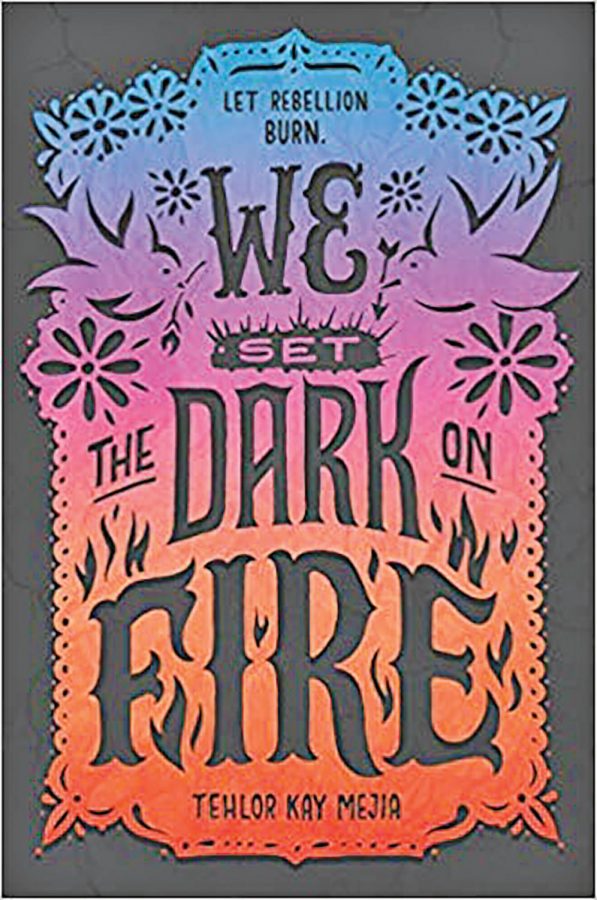Young adult novel mirrors current political unrest, familial conflict
‘We Set the Dark on Fire’ was released on Feb. 26. This is Tehlor Kay Mejia’s first young adult novel.
From debut author Tehlor Kay Mejia comes a story of political uprising, secrets, espionage and forbidden love.
“We set the Dark on Fire” starts off with an origin myth of the marriage between the sun god and his two wives, who take the roles of Primera and Segunda. Not only does the Primera provide wisdom and stability, she also is the one to organize and respond to social events. The Segunda brings life, comfort and children to the husband. The Segunda is also the overseer of the house and the people who are employees as well. This myth gives us an understanding of how marriage is seen within the world of the Medio upper class.
We follow our main character, Dani Vargas, as she prepares to be wed off to the politically powerful Garcia family as the Primera to their son, Mateo. The Primera’s role to her husband is to stand by his side, bringing wisdom and stability to him. Unfortunately, Mateo’s Segunda is her enemy, Carmen Santos. Not only does Dani have to deal with falling for her enemy, but the worry of getting caught spying for the rebellion group, La Voz, in order to prevent her secret from being exposed.
Mejia uses vivid language to bring the world of Medio to life. The way she is able to breathe life into her words will make readers feel as if they were in Medio. Not only does it make you part of it, but it also raises concerns within our reality.
The political climate in Mejia’s world is something that can ring true to us in our current political state. A topic of discussion among the characters is the rising problem of people coming over from one side of the wall and crossing illegally. The story goes into detail of what goes on in order to prevent them from coming over.
Not only does Mejia make politics a recurring theme in her novel, but she also includes commentary on the specific roles the women play throughout the story. While it seems that the roles bring happiness and prosperity to the Garcia household, Mejia puts a spin on it. Mateo’s mothers are the by-products of the greed that plagues the upper class. Both do whatever it takes to see their son move further up the political ladder—even if it means fabricating their innocence.
What drew me to this book is the homage Mejia makes to Latino culture and the romance between Dani and Carmen. As a latina, it’s refreshing to see representation in the form of strong, young latina women. I did not see much of that growing up, so I could never really feel connected to the female characters that I read about as a kid. Young readers now will be able to make a full connection between the characters and themselves.
The romance that Mejia creates for the audience is something that I was curious to see unfold. Mejia shows readers the progression of Dani and Carmen throughout the book. They slowly come to an understanding of what they feel for one another and provide stability as the world around them falls apart. It’s great to see how even in times of political crisis, two people can find love among all the chaos. It’s a beautiful thing to see.
If you’re interested in Latino culture, queer romance or political espionage, “We set the Dark on Fire” is definitely something to consider.







